The man who left the gaping hole in the Scottish Football Association accounts was Robert Dixon, a trusted accountant who had held office for over a decade. His clever fraud caused a scandal that shocked those who thought they knew him well.
Dixon was a director of Morton and had a position of considerable influence in the game, yet he was living a lie. Born in Lockerbie, after his mother died he moved with his father to Greenock where he trained to become an accountant. He set up in business and threw himself into local life, becoming an upstanding member of the community as Treasurer of the Greenock Total Abstinence Society and Session Clerk of Mid Parish Church.
But it was in football that he found his niche as a valued administrator because of his financial acumen, and in 1891 he was elected to the SFA committee as a representative of Renfrewshire Association.
His club at the time was the wonderfully-named Greenock Abstainers, a short-lived organisation which only joined the SFA in 1889 and had a remarkable record in their three Scottish Cup campaigns, losing 0-8 to Port Glasgow Athletic, 0-13 to Newmains and 0-20 to Johnstone. Based at Upper Ingleston Park, the club folded in 1893, at which point Dixon moved to Bute Rangers (Rothesay) to retain his place on the SFA committee.
However, all this time he had a secret and trouble was brewing. As Treasurer of the SFA he was trusted with their financial management, and when the Association decided in 1899 to invest £1,800 (the equivalent of about £250k today) he was left to make the arrangements.
He put the money in 'Consols' (consolidated annuities, a type of government bond with no scheduled end date, which offered perpetual interest payments). He registered the Consols in his own name, which allowed him, a few months later, secretly to sell them and keep the money. He covered the fraud by retaining the original purchase receipt and paying the notional interest, about £42, into the SFA accounts each year. To any casual observer, even to the auditors, there was nothing wrong.
This could have continued almost indefinitely but in 1906 Dixon fell ill. The SFA's initial reaction was sympathy for his inability to work and in April they awarded him an honorarium of £100 for his excellent service, then the following month he was re-elected treasurer despite his continuing illness.
As it dawned on them that they had been duped, Dixon was removed from office and the SFA held a special meeting to decide what had to be done. There were heated calls for recrimination but with the culprit too ill to respond and reported to be penniless, they were left with no option but to write off the loss.
Dixon never recovered and died of tuberculosis in 1909 aged 45, leaving a wife and three young daughters. The money was all gone, with his estate valued at just £86, which begs the question what he did with it. As an abstainer and a pillar of the church he could hardly have got away with a high-flying lifestyle, so it appears that the explanation was more mundane, and he used it to prop up his business.
The SFA, on the other hand, realised its systems had allowed too much trust to be placed in one man, and it introduced checks and balances to ensure nothing like this could ever happen again.
Robert Dixon
Born Dryfesdale, Lockerbie, 4 July 1863
Died South Street, Greenock, 1 April 1909
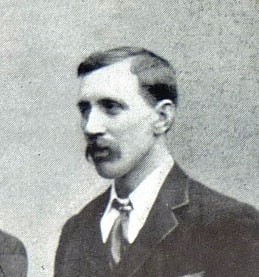
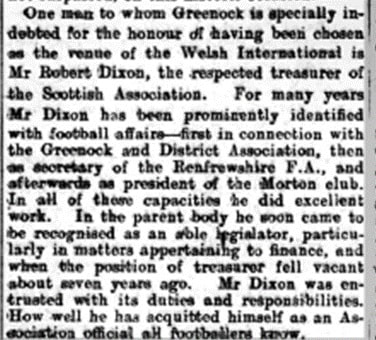
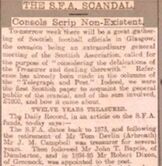
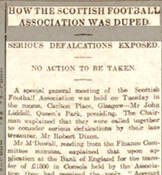
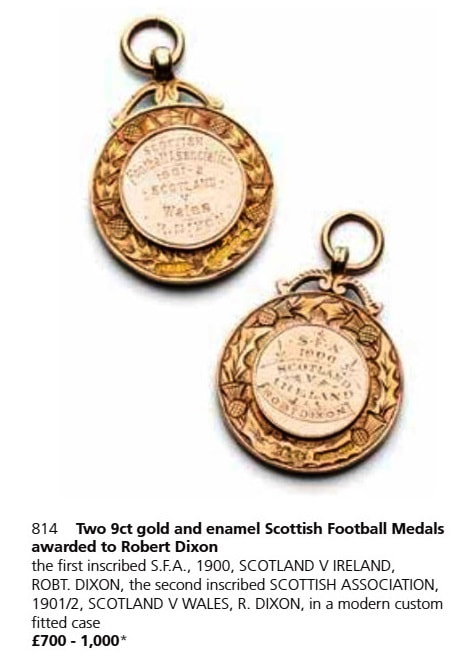
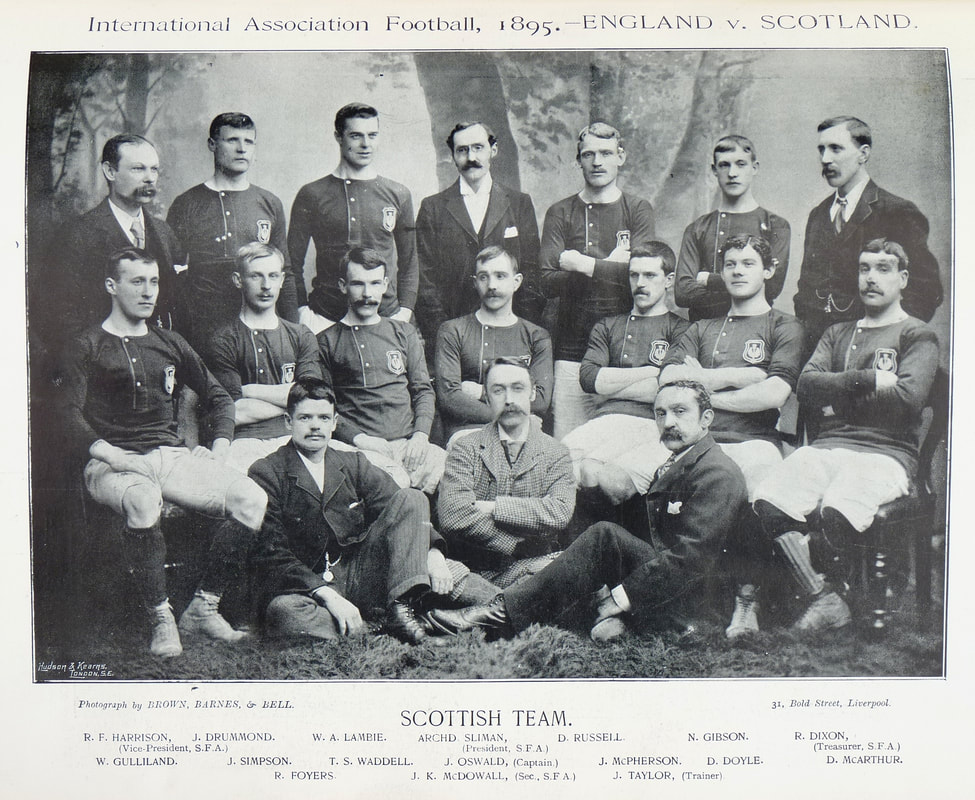
 RSS Feed
RSS Feed